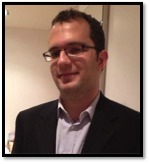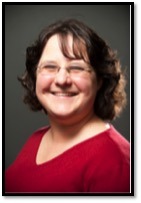
By TRAVIS HIGH, Leaders in Energy
On December 5, 2014, over 100 people attended Leaders in Energy’s first 4 Generations (4 Gen) event, a celebration of multigenerational achievement in sustainability. An open nomination process was launched to identify leaders from the Millennial, Generation X, Baby Boomer, and WWII generations who demonstrated impact through their work.[i] At the event, the panel presented their leadership philosophy, their actions and impact, and gave advice for aspiring leaders.
Leaders in Energy is excited to be hosting 4 Gen again, scheduled for this December 4, 2015 from 5:30-9 pm at The Bier Baron in Washington, DC. As one of the members of this year’s selection panel, I’ve been feeling inspired by the stories I’m reading from this year’s contenders.
It got me thinking that this would be a good chance to catch up with last year’s honorees and get their thoughts on last year’s event and what their perspective is on this year’s topic, Leading through Adversity. So the other day I caught up with Elenor Hodges, who represented Gen X in 2014.

Travis High: Since it has been almost a year, tell our readers a little bit about yourself.
Elenor Hodges: I serve as the Executive Director of Arlingtonians for a Clean Environment (ACE), a community nonprofit organization providing practical solutions to promote a sustainable lifestyle. What we do is to try to educate and engage the people in our community on environmental issues, whether it’s volunteering or providing opportunities to have team experience.
Travis: Last year was our first 4 Generations event, and you were one of the honorees. What was that experience like for you?
Elenor: It was kind of exhilarating. It was a great evening. Up until that point, I had not given a lot of thought about how I fit in my generation vs. other generations. It was interesting that there were so many similarities between me and the other panelists. We were all doing work in different places, and yet I saw a lot of crosscutting themes. We shared common threads in the stories each of us were telling.
Each of us spoke for a while and gave tips to the audience on what we thought could help them, especially on what people should be thinking about if they are entering environmental field today. Again, it was interesting to hear the same things echoed from the four of us.
Travis: That’s interesting that you mentioned about not having given a lot of thought about your generation. I’m curious – Did being part of the panel trigger any further reflection on what it means to be part of your generation?
Elenor: Yeah, it was fun to consciously connect and think about what being part of Gen X means. Like you start to look back and think, okay, these were the current events that were happening, and to recognize that and how that impacted us.
Travis: This year we’re recognizing leaders who have struggled in overcoming adversity. Can you recall a specific time when you really had to fight to accomplish a goal?
Elenor: My take on that – it’s like David and Goliath, being in a grassroots and nonprofit environment, where there are less resources, people, and money. I wouldn’t say it’s adversity per se that we face, because it’s sort of a day-to-day problem, but we’re always struggling with overcoming that hurdle. And it’s hard when these are the things that we feel very passionate about. Really, how do we do it all?
The adversity part of this is when people get burnt out trying to tackle the resource issue. So in terms of how we overcome that, I’ve found that the people we work with really appreciate the chance to be part of that community at the grassroots level. I think a lot of people feel like that helps them identify as Arlingtonians.
Travis: So then who or what are the Goliaths that you’re facing?
Elenor: Oh, well, everything really. Climate change, national policy, policy in the State of Virginia, dealing with some of the utilities that, well, let’s just say they’re not the best at investing in renewables. So again, in trying to overcome all of those challenges, being the David that we are, with just the local grassroots resources, really it’s just doing what we can. And we’re still trying to figure out the carrots and sticks.
—
A very warm thank you goes out to Elenor for sharing her insight.
As I saw it, one of her takeaways was the emergence of common threads in terms of the challenges and ideas that emerged from the four leaders, despite being from four very different generations. I found that interesting because you might be forgiven for thinking that there would be more generational differences.
But to borrow her metaphor, a lot of people are facing the same kinds of Goliaths, even coming from divergent fields and organization types. And a lot of the people who are working in the trenches in sustainability sometimes feel like the David struggling against the adversity of an opponent that far outmatches them in size or maneuverability. And yet, as we’ve found time and time again, sometimes (though not always) David beats Goliath.
If this is true, then we need to promote a community-based approach in sharing our stories.
Where there is a success story, whether it is one leader or a whole organization, whether they come from an older generation or a younger one, we need to share that story widely, so that others can connect the dots and learn from it. That urgency to connect the dots is exactly why 4 Gen is so important.
Early bird registration for our 4 Generations: Leading through Adversity event ends on November 24, 2015. The event will be held at The Bier Baron in Washington, DC on December 4, 2015 from 5:30 pm to 9 pm. More information can be found on www.leadersinenergy.org, at the link above, or on Leaders in Energy’s Facebook, Twitter, and LinkedIn pages.
[i] For the purposes of the 4 Generations event, we define generations as such: World War II (1927-1945), Baby Boomer (1946-1964), Gen X (1965-1980), and Millennial (1981-2000).


Leave a Reply